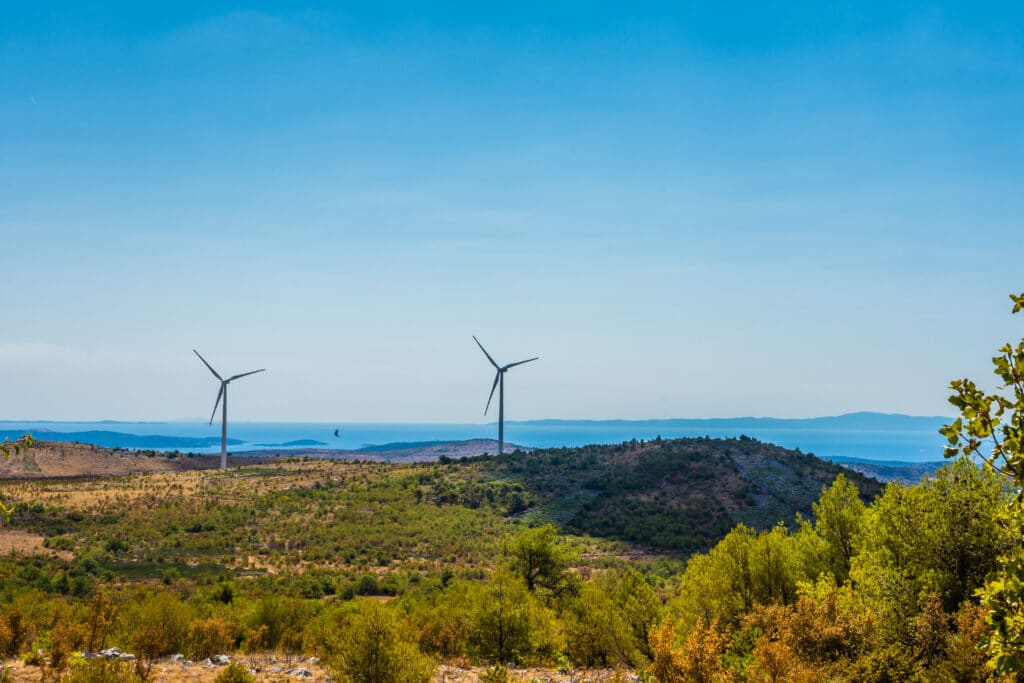CBRE is finding the use of technology is essential in its increasing efforts to assist all its supply chain members to meet their net zero targets
Regardless of size, every UK business is finding that it is increasingly being asked questions about its carbon emissions and its plans to reduce these, with some reporting that their efforts are becoming more important, if not essential, when assisting clients to achieve their own aims and to improve their chances of winning new contracts.
There have been high levels of attention on the net zero carbon emissions journey since the easing of COVID-19 restrictions, with many larger businesses mapping out plans to achieve this. The situation has led to greater awareness of the emissions produced by each business and, in turn, more focus on Scope 3 emissions and particularly those created by the supply chain.
Embracing the challenge of tackling Scope 3 emissions, CBRE has made significant progress in both reducing its carbon emissions and announcing plans to continue this, while also engaging with its supply chain to assist them in understanding their own operations and the need to address the areas of most concern. The company is finding that this is an integral part of its environmental, social and governance (ESG) programme, with links to all areas of the net zero journey.
CBRE Global ESG director Amy Brogan (pictured above) and global procurement head, ESG Mat Langley describe the significant progress made by their company in engaging with its supply chain to address each company’s carbon emissions.
One of its early discoveries within its efforts to understand all aspects of its greenhouse gas (GHG) emissions was that as little as 1% of these were produced from the running of its own facilities, with the remainder largely emanating from its supply chain. CBRE also sees carbon emission reductions as a central element of its ESG strategies and its integrated FM model.
“In terms of carbon emissions, estimates within the research from the CDP and McKinsey show that Scope 3 will account for between 50% and 90% of most companies’ emissions, which our experience backs up,” Ms Brogan explains. “Therefore, if we don’t succeed together, we will all fail together.”
She further states that if businesses are successful in addressing their Scope 3 emissions, then that will significantly benefit global aims around decarbonisation. Consequently, CBRE has created a team to look at Scope 3 emissions in all areas of its operations around the world.
“Our global efforts are being led by Mat Langley and this is a huge area of focus for us,” Ms Brogan continues. She further explains how the company initially used three different emission factors to assess its Scope 3 emissions’ hot spots, with each producing different results.
“It’s really interesting to see how using different methodologies can impact the calculations and we had pretty large variations across the three factors, suggesting that selecting which tool to use is going to be an area of concern for a lot of organisations and that they will want to quickly transition to actual or primary emissions data.”
CBRE’s early engagement with these processes is providing it with unique insight into areas of concern that will be of particular relevance for each business. This will not only assist with its own and its clients’ carbon emissions reduction processes, but also those of its clients and supply chain. With many companies still in the early stages of decarbonisation, there is growing realisation of the potential cost involved, Ms Brogan continues, which makes gaining support and assistance of vital importance.

“Obviously decarbonisation projects can be complex and costly, and you really need a subject matter expert to understand what’s required because a lack of methodology around understanding and capturing Scope 3 information is going to trip people up,” says Ms Brogan.
Mr Langley explains that this is the main reason he and his team have gone to the CBRE supply chain to encourage them to engage with the concept of reducing carbon emissions within their ESG strategies. “What’s very interesting to see is that 10% of our supply chain have used the technology we’ve provided to create their carbon reporting for the very first time, clearly demonstrating the benefit of the collaborative approach,” he says.
The company is continuing to work with its supply chain to assist everyone in understanding what is required and how to measure and gain greater understanding of their carbon missions, which then allows them to begin forming effective strategies to reduce these. One of the numerous long terms benefits is that this will allow everyone to achieve a level of accountability that will be acceptable to all parties.
“This will help everyone to map out their Scope 1, 2 and, more important, Scope 3 emissions, which is where most emissions are going to be and the most challenging area to decarbonise,” he continues.
Mr Langley explains that the company identified 180 service providers to contact as part of his team’s Project Carbon Trace proof of concept (POC) and found that 53% of these were at the start of their ESG journey and only 10% were willing and able to go through the full exercise. The survey POC found that although limited data was available from the majority of companies, significant benefits were enjoyed by those who engaged most enthusiastically.
Using its Software as a Service (SaaS) solution, CBRE has been able to identify those service providers with the highest carbon emission levels and, like some of the support it provides to clients, has provided plans to reduce them. With a growing number of clients making significant progress towards their ESG and net zero carbon ambitions, the company has found this increased level of engagement with its supply chain is further assisting its customers, given the fact that CBRE is part of its client’s Scope 3 emissions.
“The level of visibility that’s given us is absolutely fantastic and has really helped our baseline and also helped our suppliers to realise their carbon emissions and how to reduce these,” says Ms Brogan.
“Everyone is just starting to realise that identifying Scope 3 emissions is the real challenge, but no one can really agree how to calculate these,” says Mr Langley. His comments are supported by others within the FM industry and indicate that urgent action is required to address this in all areas if the UK is to achieve its legally-binding commitment to achieve net zero carbon emissions by 2050.
Perhaps the most significant point within the above is that CBRE is far in advance of any other organisation in its efforts to both identify and address Scope 3 emissions.

Ms Brogan provides an example of how analysis of the data from operations within the CBRE supply chain has already made a significant contribution to the reduction of carbon emissions. “Looking at one of our cleaning suppliers and their operation, we were able to help them to make a considerable reduction in their carbon emissions simply by procuring an alternative to some of their consumable items,” she says.
“That was quite a relatively easy one,” Mr Langley continues. “When we looked at their Scope 1 and 2 emissions, which account for 40% of their total emissions, we recommended they use electrical vehicles and renewable energy. We also identified that 60% could primarily be removed by simply changing the chemicals they used and also looked at the other options available to them.”
He further explains that a significantly higher level of challenge will come from attempting to reduce the emissions from hard service providers. “HVAC materials and anything such as steel, concrete and glass, etc, is where we’re going to have the real challenge to reduce,” Mr Langley continues. “We’re going to need to go deep into our supply chain to identify who’s buying these materials and where they’re buying them from in order to engage and work through decarbonisation strategies.”
The company has conducted an all-inclusive engagement exercise and training programme with its supply chain to explain how they can benefit and what will be required. “We’re acting as an agent for change rather than just mandating without support.
“We’re giving them the tools and allowing them to develop their own expertise to do things in ways that will be credible and help them to create accurate Scope 3 calculations,” says Ms Brogan.
“One of the things I find most fantastic in this is that I now have a tool that is able to estimate carbon emissions and provide both our clients and our service providers with a level of reporting and calculation that they just don’t have access to,” says Ms Brogan.
“But that’s just the first step. Then it’s a case of driving those change programmes and working collaboratively with the supplier to help them decarbonise.”
Mr Langley states that he is “really happy” with the progress of his team’s efforts to examine the CBRE supply chain and identify their emissions, including those that will be both easy and more difficult to reduce. “It’s been really successful, and we’ve learned a lot. And it’s really great that we can now take that to our clients and suppliers and work with them to reduce their emissions.”
Having established an effective methodology to identify Scope 3 emissions, CBRE plans to engage specifically with its HVAC suppliers early in the New Year to drive this forward.





